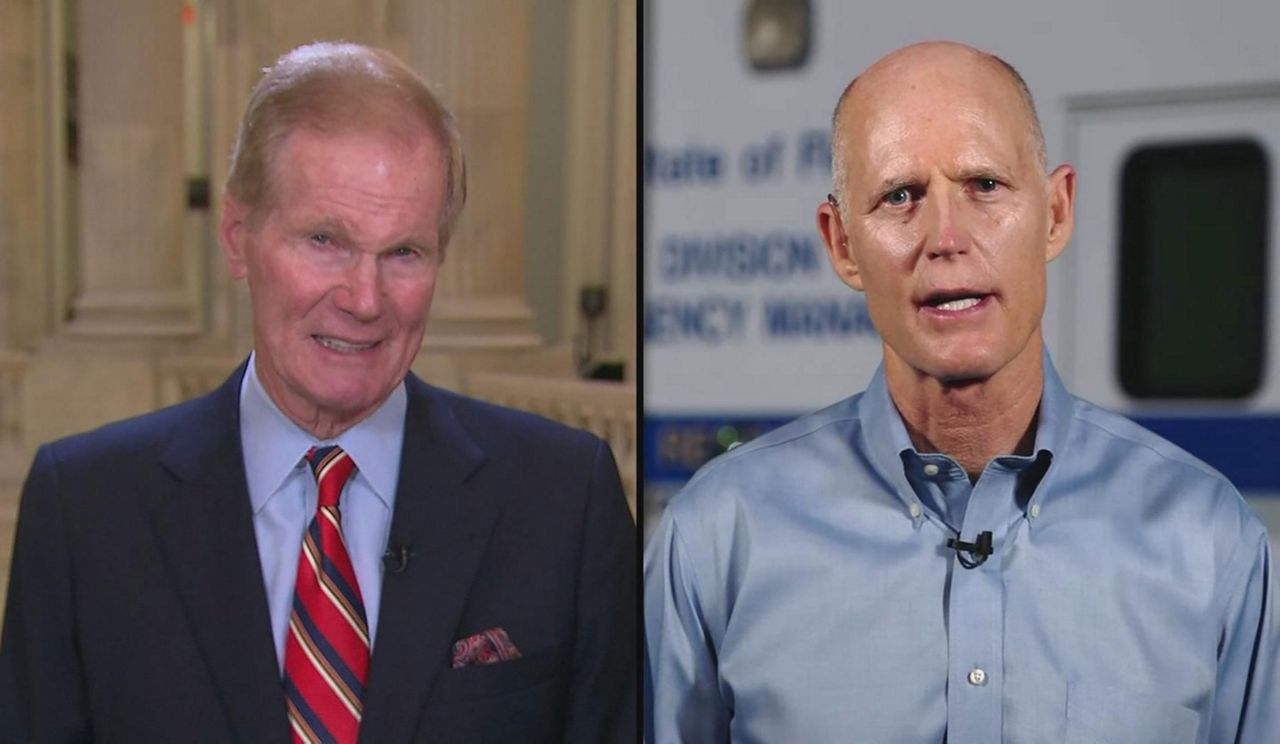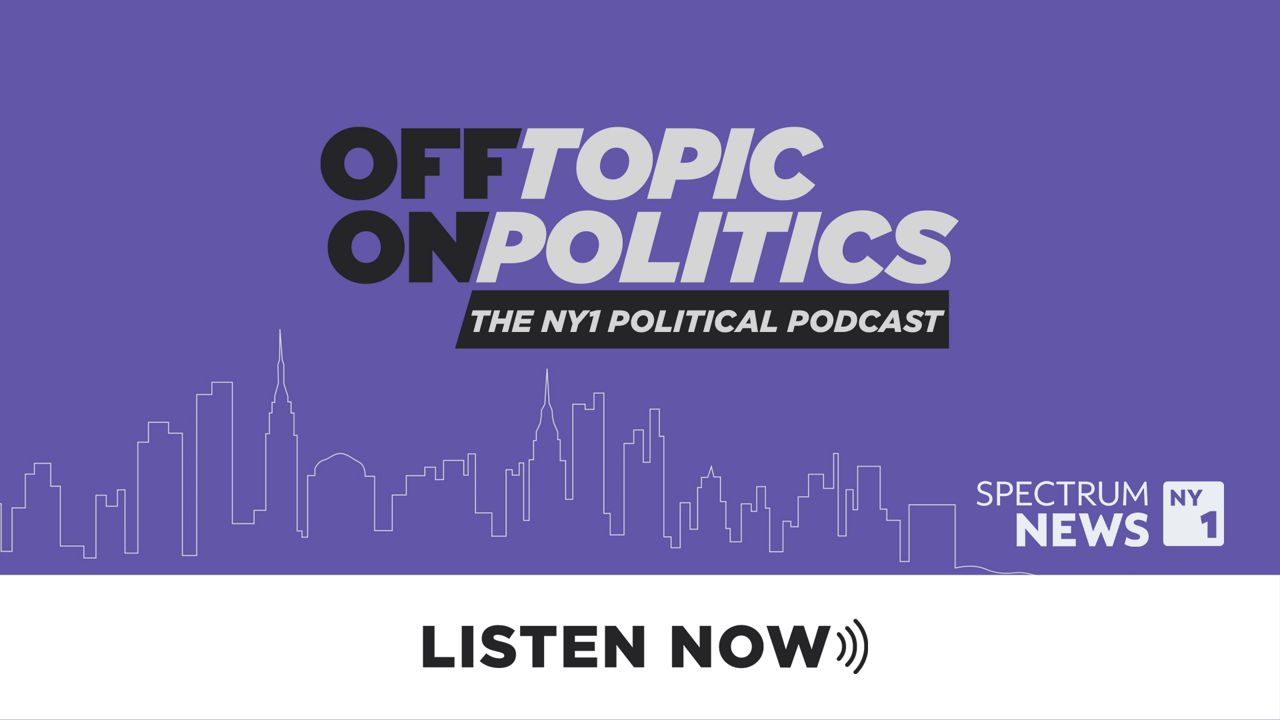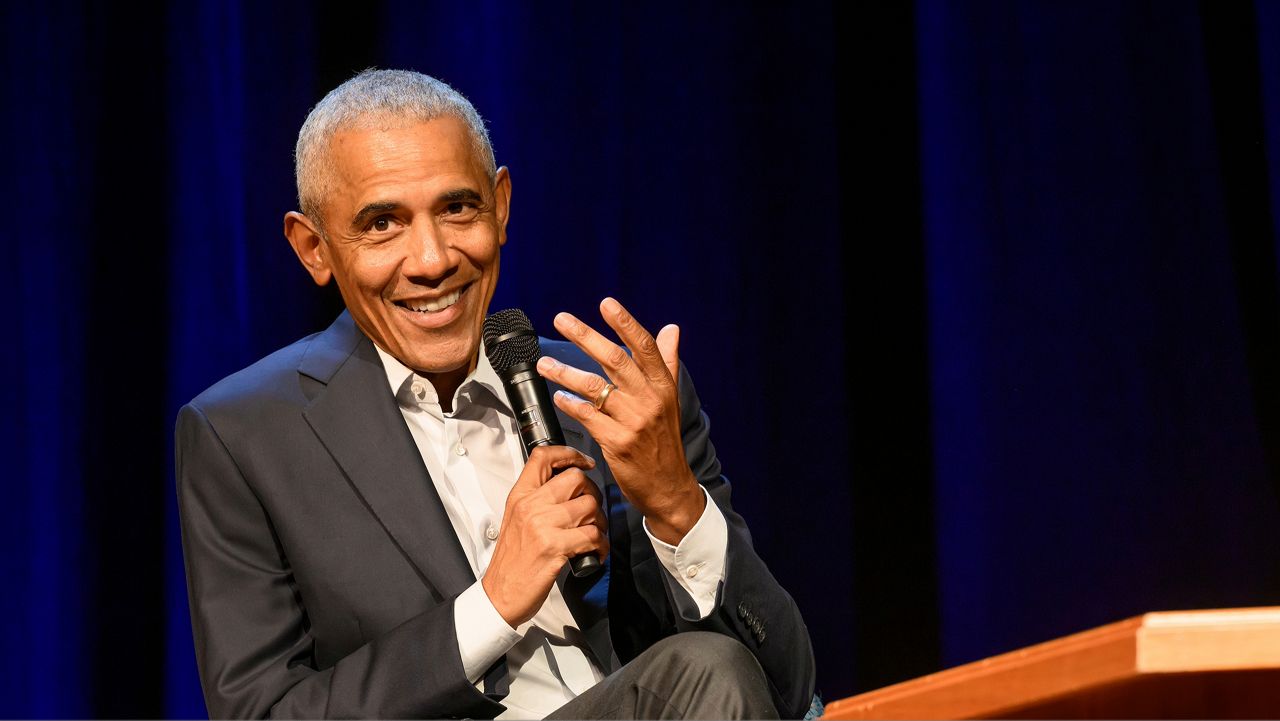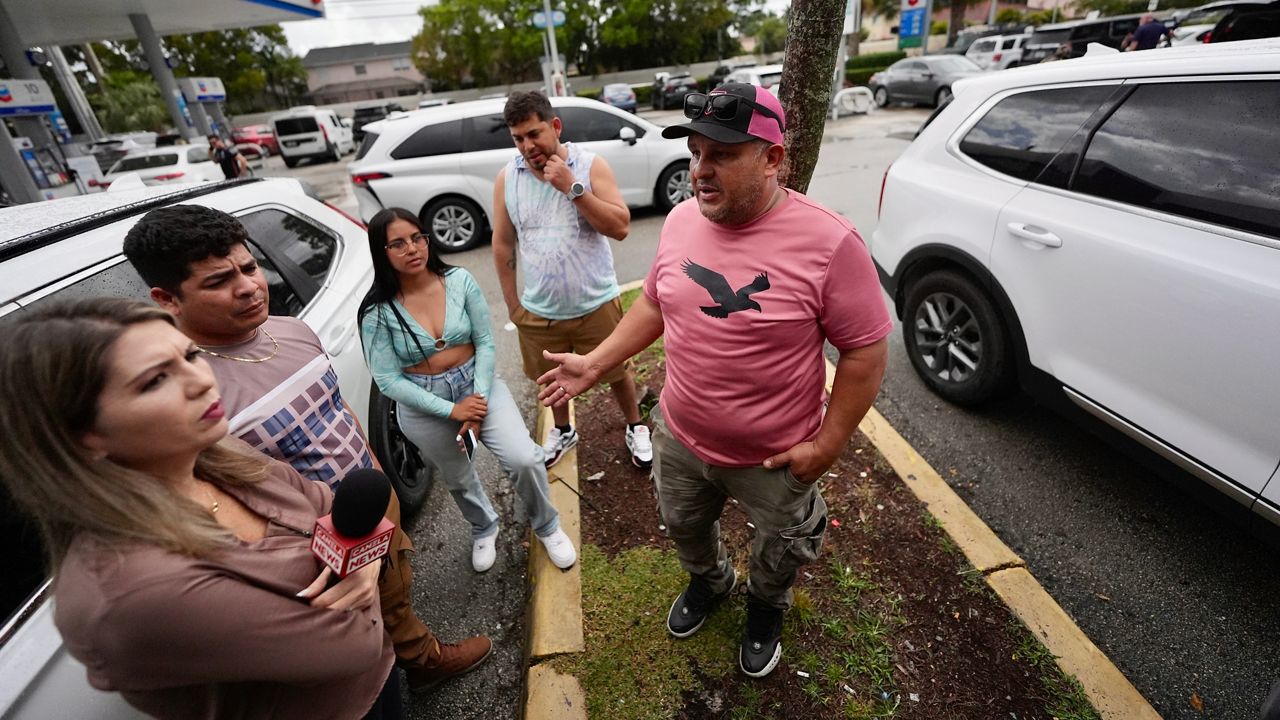ORLANDO, Fla. — The results of our Spectrum News exclusive SurveyUSA election poll show Democrat U.S. Senator Bill Nelson beginning to pull away from his Republican challenger, Governor Rick Scott.
- Nelson leads Scott 49-41 in latest Decision 2018 poll
- Nelson has closed the gap in Northeast Florida, has slight lead in Central Florida
- PREVIOUS STORY: Undecided Voters Will Be Key in Senate Race
- DECISION 2018: Latest News | Voting Guide
- DECISON 2018 POLLS: Florida Governor | Florida Attorney General
The poll shows Nelson is leading Scott by 8 points, 49 percent to 41 percent. Nelson had trailed Scott by 2 points last month but managed a 10 point swing over the past six weeks.
Early voting began today in Florida and we asked people who had just cast their ballot at a Largo site in Pinellas County, who they voted for in the U.S. Senate race.
“I voted for Bill Nelson. For one reason is he’s very experienced,” said Carl Fuestman. “He knows every single issue that’s going on in Washington right now and he’s not old.”
“I voted for Rick Scott and the reason being is Nelson has been there for quite a long time,” said Jonathan Tucker. “I think he’s really lost touch with reality and everyday life.”
The online poll, conducted by SurveyUSA, included 665 likely and actual voters across Florida (voters who either already mailed in a ballot or were likely to vote on or before Nov. 6). There was a Credibility Interval of +/- 5 percentage points.
In the last SurveyUSA poll conducted back in September, Nelson trailed Scott by 2 points. While the new poll may offer some good news for Democrats trying to take over the Senate, SurveyUSA stresses the results are still fluid, and a swing back to the Republicans may happen in the next few weeks.
By Top Issues
The top issue for Florida voters is the economy, at 24 percent, followed by immigration at 19 percent and the presidency at 17 percent.
That’s something Scott supporter Tucker echoed.
“He was Governor, he managed money and I’m all about money right now,” he said. “I think that’s the way I have to vote is with my wallet.”
But among Nelson voters, the presidency and the environment were the top issues, while Scott voters largely focused on national security and immigration issues.
Nelson’s job approval is unchanged at 40 percent over the past six weeks, while Scott’s is down 3 points to 45 percent.
Scott used to lead Nelson by 10 points among all men. Today, Scott trails Nelson by 3 points among all men, a 13 point swing to the left. Nelson also leads by 12 points among all women.
By Ideology
For undecided voters, top issues were the economy, education, and the environment, which could benefit Nelson in the end.
Nelson is also getting a boost among moderate voters, who support him 52 percent to 31 percent for Scott. Nine percent of undecideds are moderates.
By Region
Where are the majority of the candidates' supporters?
Rick Scott's biggest support is in the Panhandle and in Southwest Florida. In the Panhandle, which took the full brunt of Hurricane Michael, Scott's support has moved up 1 percentage point from our September poll, while Nelson's support has dropped 7 percentage points. More people are now voting "Other" -- 15 percent in the October poll, vs. 6 percent in the September poll.
In Southwest Florida, which was hit by both Florida Red Tide and blue-green algae from Lake Okeechobee, Scott's support is down 2 percentage points from September, while Nelson's support is up 7 points. But Scott still has his biggest numbers from that region.
Nelson's power base is, not surprisingly, Southeast Florida. His performance in that area has only increased from our September poll, while Scott's has decreased.
The two areas that will be watched closely over the next few weeks are the I-4 corridor and the surrounding counties, and Northeast Florida. In Central Florida, Nelson has over taken Scott from our September poll. Nelson leads 47 percent to 44 percent, compared to Scott leading 50 percent to 38 percent in September.
In Northeast Florida, where Scott had a 52 percent to 34 percent lead in September, voters are now tied between Nelson and Scott at 40 percent. The largest number of undecided voters by region, 16 percent, come from the Northeast area of the state.








